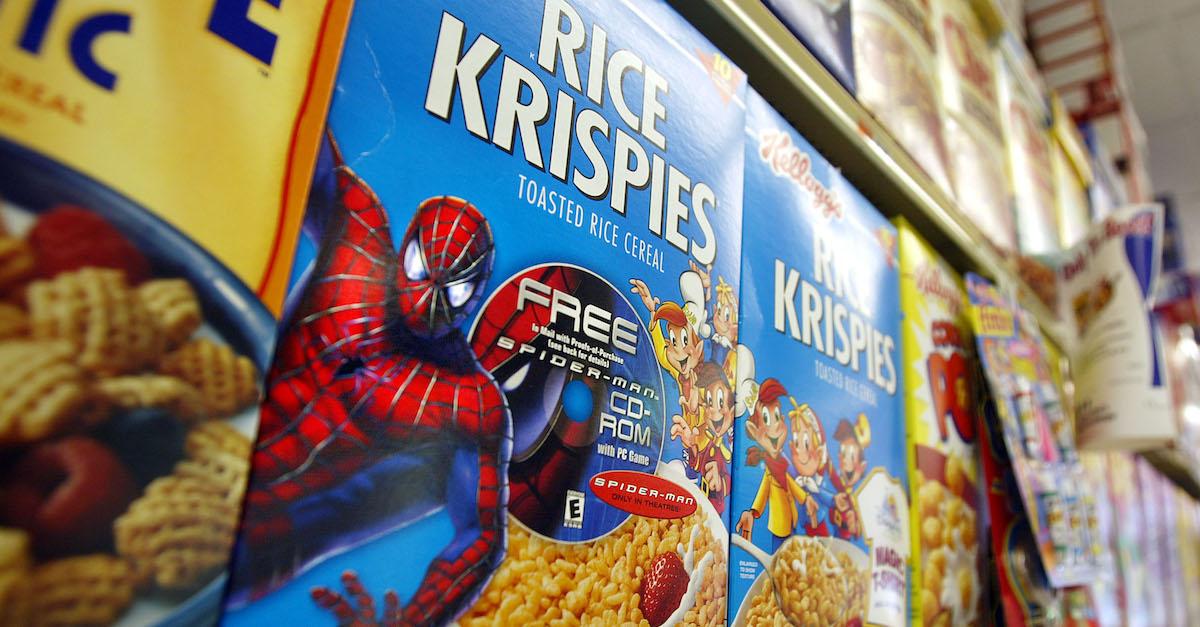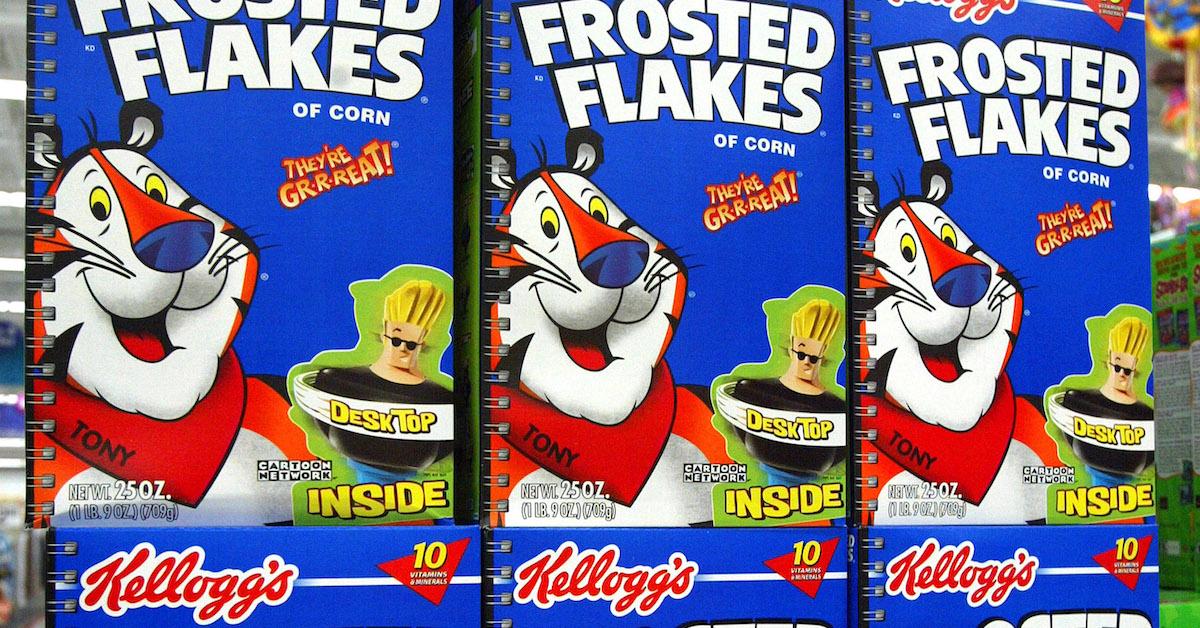Kellogg's Boycott: Why People Are Taking Action In 2024
Why is Kellogg's facing a significant boycott in 2024, and what are the core issues fueling consumer discontent? The confluence of CEO remarks, labor disputes, and concerns over ingredients and corporate practices has created a perfect storm of public backlash, prompting widespread calls to action against the iconic cereal giant.
The current wave of criticism directed at Kellogg's is not merely a spontaneous reaction; it's a complex issue with deep roots. Several factors intertwine, including the tone-deaf comments of the company's CEO, Gary Pilnick, and ongoing labor disputes that have further amplified negative public perception.
| Issue | Details |
|---|---|
| CEO Remarks | Gary Pilnick, the CEO of WK Kellogg, suggested that people struggling financially could eat cereal for dinner as a cost-effective solution. This statement was widely criticized as out of touch, especially given rising food costs and the company's increasing profits. |
| Labor Disputes | Workers at Kellogg's have previously gone on strike, leading to calls for boycotts to support their cause and pressure the company to negotiate fair contracts. |
| Ingredient Concerns | Consumers have raised concerns over the use of artificial food dyes in Kellogg's cereals sold in the U.S., despite the company's removal of these ingredients in products sold in other countries like Canada. |
| Corporate Practices | Critics also point to the company's connections with Israeli companies and its approach to addressing economic struggles as contributing to the calls for boycott. |
Further, the boycott has been propelled by the power of social media, with influencers and creators taking to platforms such as TikTok to galvanize public opinion. Calls for the boycott have gained considerable momentum, sparking online discussions and amplifying the voices of concerned consumers.
- Unveiling Alexa Ray Joel Bio Age More Latest News Updates
- Chandra Wilson Net Worth 2024 How Rich Is The Actress
The genesis of this most recent wave of boycott sentiment can be traced back to comments made by Kellogg's CEO, Gary Pilnick. His suggestion that consumers struggling with the cost of groceries could simply eat cereal for dinner ignited a firestorm of controversy on social media. This statement, perceived as dismissive of the economic hardships faced by many, struck a nerve and quickly became a rallying point for those already critical of the company.
The response was swift and severe. Social media users, particularly on platforms like TikTok, quickly turned their attention to the perceived insensitivity of Pilnicks remarks. Creators like "Tall Girl" and "RawCritix" played a pivotal role in amplifying the call for a boycott, urging followers to take action by purchasing products from competing companies during the boycott period of April 1st to June 30th. The intent was clear: to send a message to Kellogg's during the second quarter of the year, a critical time for the company's sales and financial performance.
Adding to the pressure are ongoing labor disputes and concerns surrounding the company's employment practices. Labor advocates have been calling for boycotts to support striking workers and pressure Kellogg's to negotiate better contracts. Some individuals have even attempted to disrupt Kelloggs hiring processes to hamper the company's ability to bring in replacement workers during strikes, showing the depth of feeling among those affected.
- Justin Bieber From Baby Biebs To Superstar Watch Now
- Jerry Lewiss Net Worth How He Built His 50 Million Fortune
The issue of ingredient choices also fuels consumer discontent. A significant point of contention is the continued use of artificial food dyes in Kellogg's cereals sold in the U.S., despite the company having removed these ingredients from products sold in other countries, such as Canada. This has led to accusations of a double standard, with consumers feeling that the company prioritizes profits over the health and well-being of its American customers.
The company's response to these multiple challenges will be crucial in shaping its future. Public relations, policy adjustments and a shift in its overall approach could be crucial steps to regain the trust of the public, particularly in light of the recent boycott.
The boycott, born from the intersection of economic concerns, labor disputes, and ingredient choices, presents a unique challenge for Kellogg's. The company will need to consider not only the financial impact of decreased sales but also the broader implications for its brand reputation and the future of its relationship with consumers.
The debate around Kellogg's extends beyond immediate business metrics. It serves as a powerful illustration of the increasing influence of consumer activism and the complex interplay between corporate behavior, social media, and economic realities. The company's ability to weather this storm and rebuild public trust will be a defining moment, showcasing its adaptability and its commitment to the principles of social responsibility.
Beyond these immediate concerns, there are further issues at play. Some critics point out connections between Kellogg's and Israeli companies, adding another layer of complexity to the boycott calls, particularly among Palestinian activists and their supporters. These added issues show how Kellogg's reputation could be affected, especially in regions like the Middle East, where geopolitical sensitivities are high.
The boycott discussions have not been limited to the digital sphere; physical protests have also played a role. For example, in October, Hari organized a large march on Kellogg's headquarters in Battle Creek, Michigan, garnering significant participation and media attention. This direct action, coupled with the digital campaign, amplifies the impact of the collective consumer response.
Kellogg's has pledged in 2015 to remove artificial flavors and colors by 2018. However, nine years later, they say 15% of their cereals still contain them. This slow progress is one of the reasons that people are protesting against the company.
The impact of these boycotts extends beyond the immediate financial implications for Kellogg's. The protests are part of a larger trend of consumer activism, where individuals leverage their purchasing power to express their values and hold corporations accountable.
As the situation unfolds, it is clear that the challenges faced by Kellogg's are multifaceted and require a comprehensive approach. This must include addressing concerns about affordability, labor practices, ingredient choices, and brand image.
The current climate, marked by widespread economic hardship and increasing awareness of corporate practices, means that companies like Kellogg's will face heightened scrutiny. How they respond to these challenges will determine their future success.
The criticism is fueled by the companys perceived prioritization of profits and by the recent comments made by the CEO that have generated a large amount of backlash on social media, particularly on TikTok. The boycott that has been organized on TikTok, which will run from April 1 to June 30, encourages people to support other brands and to send a message to Kellogg's.
The core of the issue is centered on the public perception of corporate practices and the gap between corporate profits and the rising cost of essential goods. The CEO's words were seen as out of touch, especially with the increasing financial strain that many are experiencing. The boycott is designed to create a direct impact on the company, reducing sales and putting pressure on Kellogg's to address the critical concerns of the public.
The fact that the CEO has stated that those who cannot afford groceries should eat cereal for dinner has exacerbated the public outcry. The phrase "we outnumber them 100 to 1" expresses the collective sentiment that consumers hold greater power than the corporation. The boycott's aim is to highlight the solidarity that can come from widespread consumer actions.
The labor disputes add another dimension to the boycott. The support of the striking workers has increased the pressure on the company to bargain in good faith and offer fair contracts. The boycott serves as a direct way for consumers to show their solidarity and support for workers' rights.
The concerns surrounding the use of food dyes further underline the complex nature of the boycott. The discrepancy between the ingredients used in U.S. cereals and those sold in other countries has raised questions about the companys commitment to the health and well-being of its consumers. These issues have been highlighted by online movements and by individuals.
The boycott, as has been seen, has already garnered a significant amount of support. This has resulted in increased awareness and a willingness to put pressure on the company to address the issues that people care about. As social media platforms continue to fuel the discussion, the pressure on Kellogg's will remain high. The results will likely show the overall effects of the consumer boycott.
There are various factors to consider when analyzing the Kellogg's boycott, including the impact on the company's reputation, the changes needed to deal with the current situation, and the overall consequences on the market.

Why Are People Boycotting Kellogg's in 2024? CEO's Comments Cause Stir

Why Are People Boycotting Kellogg's in 2024? CEO's Comments Cause Stir

Why Over 15 Million People are Boycotting Kellogg's... YouTube